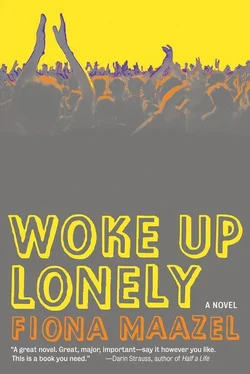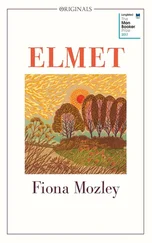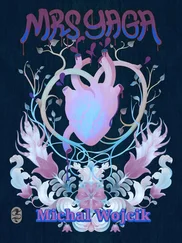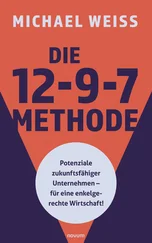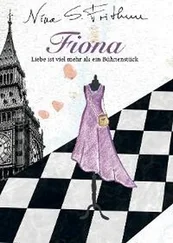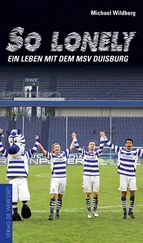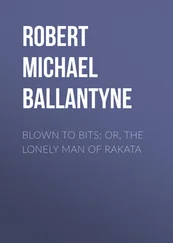Alongside the ambulances and helicopters, there was music. The sizzle and wheeze of wood and plaster, parquet and trusses, of memories risen from the char, all consolidated in dirge for a fire well spent.
He knew exactly what everyone wanted to hear, which was that this fire had been started inside and on purpose.
If this stack of index cards could survive a blowup like that, someone wanted them read. He put them in his bag, intending to return to the site tomorrow.
Trouble was, he’d been taken off the case overnight. Was he a federal investigator? No, he was part of the Cincinnati Fire Department, est. 1853, oldest in the country, thanks. Fine, but go home. And then to D.C., where instead of being asked to testify, he’d produce some killer evidence in the form of index cards that would earn him a seat in the front row, so that on day one of this joint hearing of the House Committee on the Judiciary and the House Committee on Oversight and Government Reform, a fire investigator from Cincinnati took real pride in his work.
Into record: an affidavit in code, comprising sixteen index cards, the content of which might be germane to the unpacking of motive charged to a hearing such as this. Perhaps if the committee knew what Esme Haas had been thinking, they could better suss out the whereabouts of the hostages. No doubt they were with her, or vectored out of the compound by her? If, of course, they were not dead. Please do not be dead.
Martin was put to work. Apparently, it wasn’t masquerade he liked so much as transformation. Because, in an irony that belied his life’s commitment to disguise, he laid bare the stuff of Esme and her monologues issued for the wooing of Thurlow Dan out of his house.
Ensuing: debate about who should read the cards into record. Ensuing: was it prudent or even tasteful to hire an actress? If so, would she sight-read or practice? Come time to animate someone else’s beating heart, this can make all the difference.
And so, into record:
45. Lo, I want to tell you about North Korea and what actually happened when you were there. Looking back, I realize it was a flash point for us. Or for me, anyway. So I guess, after all these years, this is my Helix moment. This is me confessing all.
It’s true I’d been to Pyongyang a few times, with J.T. or as part of a tourist consortium from Japan, but for this last trip to see you there, it seemed prudent to enter the country with greater stealth and regard for the peril attached to my plans. The dissident movement in North Korea is alive and metastasized now that cell phones and digital cameras have breached the border. You can reach people on the inside, and they can reach you. This was how I made enough contacts to get down to Pyongyang from the north, where I’d enlisted help from Christian missionaries in Yanbian. They ran an orphanage for North Korean kids whose parents were living in the woods until they died, there being small opportunity for escape to Vietnam and even less to Mongolia, where the Chinese border patrol was much less easily bribed than the North Korean.
46. I was to hide with a couple and their five-year-old son until dark. It was a big risk for them, but since I’d come with rice and cured beef, a Zippo and butane, they took me in. To their home, which was a lair they’d dug by hand from the hillside. It was five by five, tops. Sustained by a four-foot square of wood that was rotted through and a tarp that caught moisture from the ground above and had to be drained several times a day. This family had already been repatriated to North Korea once, survived a detention center, and fled the second they got out. Yet, for a sack of beef jerky, they were willing to jeopardize what they had and keep me safe.
47. This day was also trial run for my Korean countenance. The nose, flared and recessed. The uncreased single eyelid and epicanthal fold. The ebon hair I’d had cut to accommodate a ponytail and bangs. The Yoo family had not been told about me; they expected a Korean, which is what they got. I knew how to act, and I kept my mouth shut. But it was difficult. Their son was stunted; he looked about three years younger than he was, though the time lost on his body was taken up by his parents, who looked sixty-plus, though they were half as old. They spent much of the day rubbing his hands and feet, and lapping the den on all fours, frostbite being the least dangerous but most avertable consequence of this lifestyle. The boy did not know the alphabet or numbers; he had not learned how to hold a pencil; probably this couple would have to give him up; and then what? Why go on? What illusion of value could they impose on the day-to-day once they’d parted from their child? Nightfall could not have come sooner.
48. Christmas is heretic in North Korea, but Constitution Day, at the end of December, usually means fewer guards on the border. I headed out at 3 a.m. I hiked the two miles from the hills between Liangshui and Mijiang to the Tumen River, which marks the border. In winter, it’s ten below and dark as tar. You can walk for an hour and still not make it. During that hour, either you meet no one, you bribe border patrol, or you beg for your life. The land is pack ice, but the snow keeps prints all season, and for how remote and forbidding is this terrain, only despair can explain why it’s so well traversed.
49. The dark was condensed in the valley between hilltops, though if I wanted to find my guide’s spangle — he’d be waiting for me on the North Korean side of the river — I’d have to depart from this safety and get to high ground. I was wearing canvas sneakers swaddled in washrags; the ascent was slow going. And not much reward once you got there. Paddy fields in spring and summer, tundra in the winter months, and at night no lights, cars, industry, or people. And yet, for the pandemonium in my heart, it was as though I stood among the eight hundred thousand who had made this crossing to date. Only they went in the other direction, from the certainties of famine and death to mortifications unknown but free. Only for love does anyone willingly go back.
50. The river was frozen, and the crossing a skeleton race at half speed, chest pressed to the ice. I met no guards, just Chul-min, who’d sat behind a bush for the three-hour window in which he’d been told I would come. From there we went to a farmhouse just a mile east of the train station at Simch’ong-ni. Then: Hoeryong to Musan to Hyesan to Kanggye to Pyongyang. Three hundred eighty miles. A six-hour drive by car, six days via North Korean rail.
51. There’s a reason most people never see anything of North Korea but Pyongyang. It’s because the rest of the country is squalid beyond all imagining, and this to spite the homogeneity of its design: single-story homes in a grid, whitewashed timber or stucco walls, the rooftops an orange clay tile, and every plot squared in with a brindled picket fence. There is no cement to pave the roads and no shoes to walk the cement, so mostly people are barefoot, even in the snow. The filth seems meticulous and prolific in its outreach — even the soap can’t stay clean— which makes sense of the delimited color scheme of people’s clothes: black, gray, black, brown. No one stands out unless you know what to look for. The border towns are crammed with smugglers and People’s Security Force officers not sharp enough to serve in Pyongyang, and all are engaged in one illegal activity or another — trucking in contraband like PCs or just stealing fertilizer from a truck — and with one motive in mind: to stay alive. For this reason, strangers are unwelcome. I spent that first day in a janitor’s closet at the train station. Fuel being scarce, the schedule was a joke. A train came when it came. By the tracks: people asleep on the ice, in wheelbarrows, playing cards, trading nylon for corn, which cost a lot of corn. Faces wan and tapered, and everyone’s hair falling out. Amazing how hair and dust always find each other; the stuff blew across the tracks like briar.
Читать дальше
